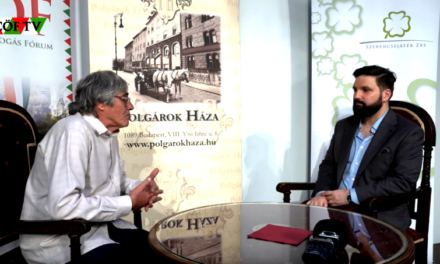vasarnap.hu spoke with Petra Halkó, the leading analyst of Századvég, about the structure of the newly formed Orbán government, the scandals surrounding the opposition factions, and the suspicious party financing background of the left-wing parties. We will look at this.
There will be nine factions in the National Assembly, which is a record compared to the composition of previous parliaments in the period since the system change. The opposition coalition decided to form six representative groups. The reason for this may be mainly financial, because according to the law, factions have an operating and supply budget in addition to the salaries of politicians. How strict are the legal requirements regarding accounting?
First of all, it must be clearly stated that there was an abusive exercise of rights against the law on the part of the opposition coalition - purely for the sake of financial gain. The law is applied in a way that is incompatible with its social purpose, said the analyst. Second,
this separation is misleading for the electorate, as it gives the impression that these parties have actual membership and an active network, while some political families - such as Párbeszéd - are on the verge of extinction. It is not setting an example, but hypocrisy on the part of the opposition.
It is questionable what exactly the received sums will be used for, which are often disproportionate to the number of representatives and their results compared to the previous cycle. Although the State Audit Office audits the budgets of parties that receive support from the central budget every two years, this only means a review of party funds. Regarding the establishment of factions, it would be timely for the Parliament to reconsider the legislative environment for the sake of transparency.
In Hungary, parties cannot accept anonymous donations or financial contributions from foreign organizations and natural persons without Hungarian citizenship, yet they were able to circumvent the party law in force by creating the movement "Everybody's Hungary" created by Péter Márki-Zay - ed. in the form of an association. The United Hungary for Hungary party association itself encouraged on its official website to support the election campaign of its candidate for prime minister through the association. By the way, this opportunity was provided in collaboration with The Action Network, an organization whose declared purpose is to support progressive movements. Precisely such loopholes should be closed by more strictly regulating the accounting and operational issues of organizations dealing with public issues. This is the only way to expose and rule out attempts to influence foreign interest groups.
In response to a question, the analyst explained that Hungary is a member of the European Union, and that this is a huge insult to the EU, because everything
what Hungary is doing is of continental importance and protects the interests of Europe as the last bastion.
It is also clear that managing the effects of war and inflation will be at the center of the new government's goals.
The economy is the guarantee that goals such as infrastructure development or wage increases are realized. If you like, the economy is subordinate to these areas. But contrary to leftist beliefs, the economy produces money for this, not loans. The amendment to the Tenth Basic Law provides the government with more room for maneuver in crisis situations, in this case when a neighboring war conflict breaks out. According to the original wording of the Basic Law, it was possible to introduce an extraordinary legal order only if it took place within the country, the country itself being part of the military conflict. To avoid this, the expansion and subsequent introduction of the state of emergency was necessary precisely so that the government could act before it and could prevent it from getting involved in the war, endangering the lives of the Hungarian people.
Source and full interview: vasarnap.hu
Featured image: Halkó Petra












